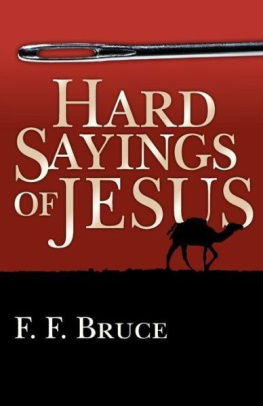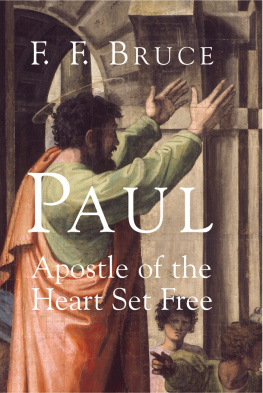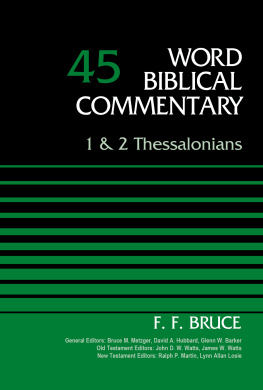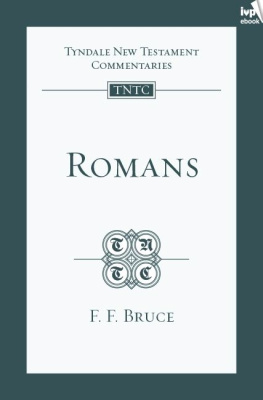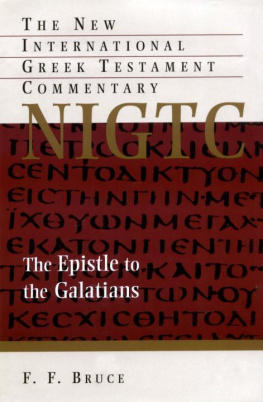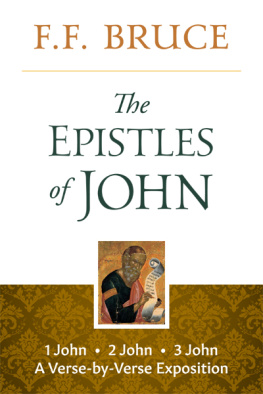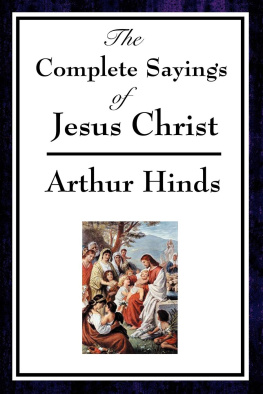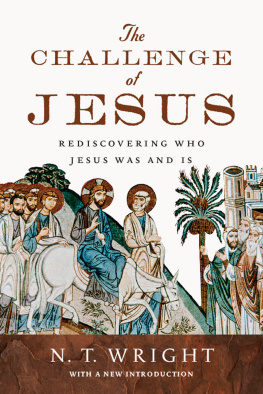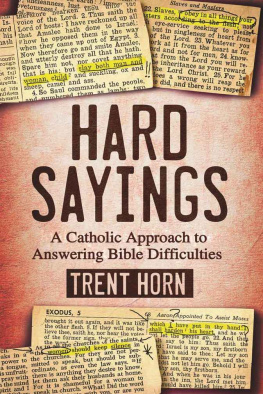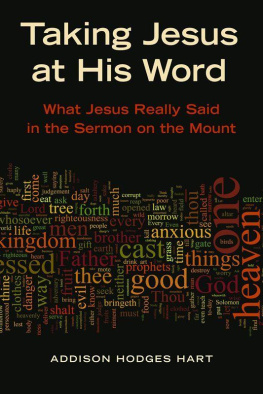F. F. Bruce
F. F. Bruce
R T. France






To my students in the University of Manchester 1959-1978
Abbreviations








Editor's Preface
Jesus of Nazareth remains the most important individual who has ever lived. Nobody else has had comparable influence over so many nations for so long. Nobody else has so affected art and literature, music and drama. Nobody else can remotely match his record in the liberation, the healing and the education of mankind. Nobody else has attracted such a multitude not only of followers but of worshippers.
And nobody else has been subjected to such intense and prolonged critical study. After more than two hundred years of detailed examination and argument, many of the critical issues remain astonishingly open. The high-water mark of scepticism has receded somewhat. It is no longer assumed without question that nothing orthodox can be true. But certain emphases, methodologies and presuppositions, common in New Testament studies, are widely held to militate against the reliability of the picture of Jesus presented to us by the documents. There is a rumour abroad that in these days of redaction criticism it is neither proper nor necessary to ask what actually happened, and that the Jesus of history is indistinguishable behind the Christ of faith. This series will address itself to the task of re-examining Jesus.
During the 1970s Hodder put out a series of books on controversial issues within the Christian religion. They were published in various countries, and were written by a variety of authors who were united in the belief that good scholarship and orthodox belief were not incompatible. During the 1980s the same publishers hope to produce a comparable series concentrating on the supremely controversial storm-centre of Christianity, Jesus Christ himself. Various aspects of the Jesus story will be looked at: his teaching, his example, his death and resurrection, his uniqueness. In this, the first volume of the series, Dr. F. F. Bruce, recently retired as Rylands Professor of Biblical Criticism and Exegesis at Manchester, and one of the most distinguished of British New Testament scholars, has set the tone to which other writers in the series will aspire. His book is characterised by clarity, honesty, scholarship, intelligibility and faith.
Those who have heard Professor Bruce answer questions, without a note, on the most abstruse New Testament problems will be delighted that he has agreed to tackle seventy of the most difficult sayings of Jesus. I know of no book like this, and I am confident that it will reach a very wide circle of readers. The considered fruits of his research and reflection will afford both understanding and confidence to many, and will bring the person of Jesus into clearer focus for every reader.
Michael Green
Author's Preface
When Michael Green, in his friendly and persuasive way, invited me to contribute to this series and allowed me a choice of titles, I told him I would play for safety and opt for The Hard Sayings of Jesus. What I meant by `playing for safety' was, I think, that this subject would confine me mainly to exposition, an exercise in which I feel comfortably at home.
I quickly found that the exposition of the hard sayings of Jesus is a difficult and responsible task; yet I am glad that I undertook it, for it has proved specially rewarding. His yoke is easy and his burden is light, but his sayings are often hard because they run counter to well-entrenched presuppositions and traditional assumptions about life and human relations. When they are hard for this reason, I hope I have not made them easier, for that would be to obscure their meaning. But the exposition of seventy of his sayings in the following pages may help readers to see what the main emphases of his teaching were.
F. F. B.
Introduction
Many of those who listened to Jesus during his public ministry found some of his sayings `hard', and said so. Many of those who read his sayings today, or hear them read in church, also find them hard, but do not always think it fitting to say so.
Our Lord's sayings were all of a piece with his actions and with his way of life in general. The fewer preconceptions we bring from outside to the reading of the Gospels, the more clearly shall we see him as he really was. It is all too easy to believe in a Jesus who is largely a construction of our own imagination - an inoffensive person whom no one would really trouble to crucify. But the Jesus whom we meet in the Gospels, far from being an inoffensive person, gave offence right and left. Even his loyal followers found him, at times, thoroughly disconcerting. He upset all established notions of religious propriety. He spoke of God in terms of intimacy which sounded like blasphemy. He seemed to enjoy the most questionable company. He set out with open eyes on a road which, in the view of `sensible' people, was bound to lead to disaster.
But in those who were not put off by him he created a passionate love and allegiance which death could not destroy. They knew that in him they had found the way of acceptance, peace of conscience, life that was life indeed. More than that: in him they came to know God himself in a new way; here was the life of God being lived out in a real human life, and communicating itself through him to them. And there are many people today who meet Jesus, not in Galilee and Judaea but in the gospel record, and become similarly aware of his powerful attractiveness, entering into the same experience as those who made a positive response to him when he was on earth.

